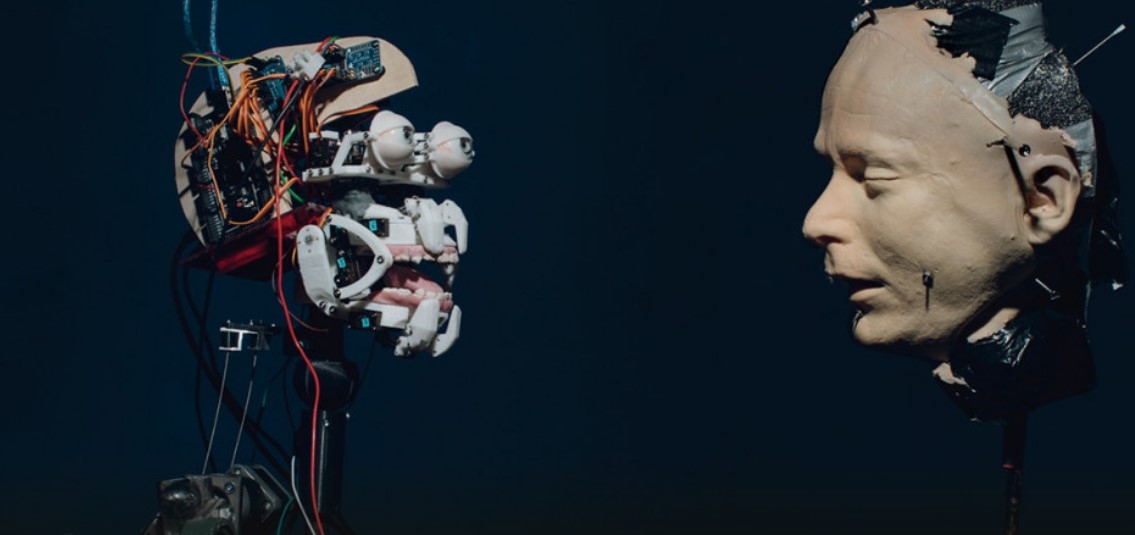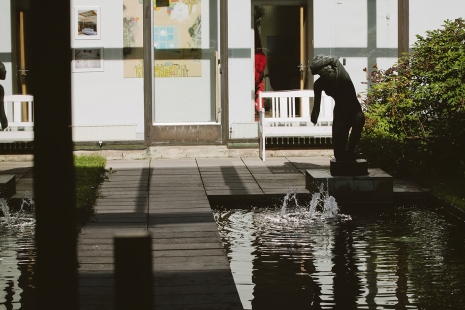Pekka and Teija Isorättyä are best known for their mechanical sculptures, robots and installations that explore the human relationship to technology and nature in a poetic manner, but also with a bit of sarcastic tongue-in-cheek playfulness. The Isorättyäs often use recycled materials, scrap metals and waste plastic, as well as bones and animal leather as the starting point for their works, and combine them with technology. It is as though they give technology a life and a soul in their work – in both the good and bad sense, endowing it also with human weaknesses and mistakes.
In a similar vein to popular culture, the Isorättyäs also use robots in their art to illustrate the conflict between a perfect, ideal person and real human weakness. The Isorättyäs’ use of robots with human deficiencies manages to crystallise something essential about being human. The trees, mechanical wolf and singing elk-head in the installation Fail Tolerant Forest show how tolerant of faults nature is, that is, of us people. We hurt nature, even though we are a part of it. And, despite our actions, nature will hopefully remain after we are gone. Even though the Isorättyäs deal with big and difficult themes, their works also contain beauty and lightness.
Originally from Tornio, Pekka and Teija Isorättyä (both b. 1980) are internationally renowned and recognised artists. They have held exhibitions in, for example, Mexico, the United States and Japan. The artists have received the Lapland Art Award and the William Thuring Foundation Prize, and they were nominated for the Ars Fennica Prize in 2017. They have received Public Choice Awards from the Ars Fennica 2017 exhibition at Kiasma and the 2010 and 2011 Nord Art exhibitions in Germany. In addition to the Turku City Art Collection, their works are found in the collections of the Finnish National Gallery, the Aine Art Museum and the Jenny and Antti Wihuri Foundation Collection.





